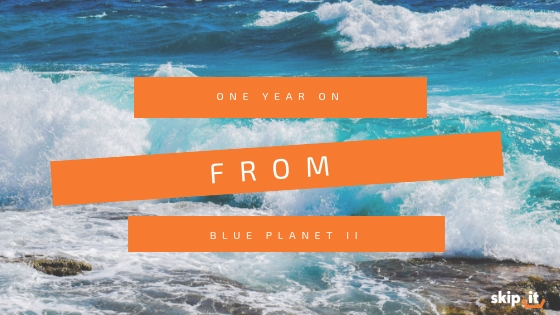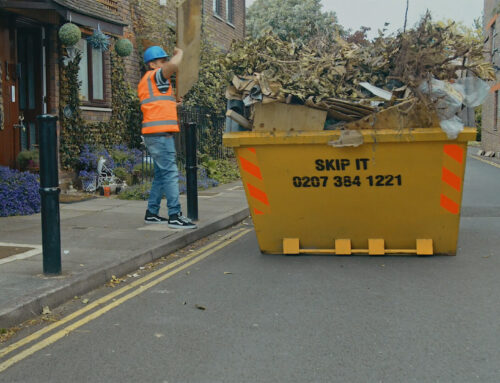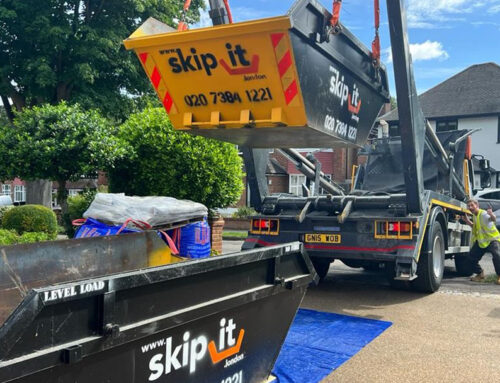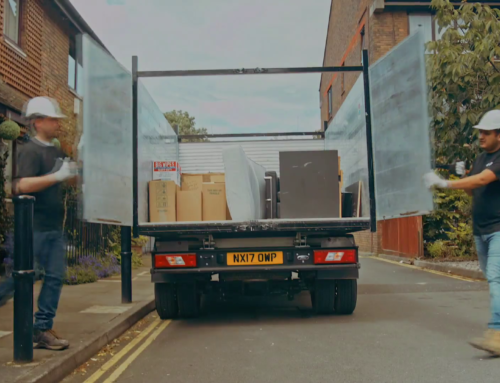When the global plastic pollution was highlighted in the 2017 winter Blue Planet II series, we were just as shocked and outraged as Sir David Attenborough. This television series highlighted that the problem of plastic pollution was getting worse than most people thought and the way the documentary filmed it brought it home to many people.
To discover what major changes have taken place since Blue Planet II was first broadcast in 2017, read on below.
Recycling is a subject that’s very important to us at Skip It, not only do we pledge to recycle 95 per cent of all the waste we receive from both our commercial and residential customers, but we are committed to keeping London free of hazardous waste in order to help our city remain clean and green for generations to come.
In our recent blog, we investigated the recent scandal of the UK’s plastics recycling industry, which emerged following the spotlight on plastic pollution that the issue has received since Blue Planet II aired last year.
What Blue Planet II highlighted
This stunning BBC nature program was narrated by Sir David Attenborough showcased the beauty and drama contained within the world’s seas and oceans. It even went further than its predecessor Blue Planet in terms of subject matter, such as the whale calf dying from the toxins in its mother’s milk due to the consumption of micro-plastics in the water.
However, in an unexpected twist, Blue Planet II dedicated the whole of the final episode to the blight of plastic pollution on the ocean and how many animals and habitats have come under threat from this man-made menace. The often heart-breaking footage of many marine mammals, reptiles, birds and fish being poisoned by mistakenly consuming plastic or by being tangled up and injured in it, sent shockwaves through the nation.
In an unprecedented move, which felt like an impressive overnight response, environmental issues that had been in the shadows, such as plastic pollution, took centre stage as more and more people were moved and shocked by the extent of the environmental damage it has caused.
There have been many positive changes since Blue Planet II was aired, so we thought it would be only right to celebrate the change in attitudes towards waste management standards and practices when it comes to plastic pollution.
The UK government
Even Prime Minister Theresa May’s government were shocked at the amount of plastic pollution in our oceans, which was featured in the final episode of Blue Planet II. Earlier this year, Theresa May’s government pledged to set aside £61 million to help fight plastic pollution in our oceans.
When the Prime Minister announced the new fund, she called on 52 Commonwealth leaders to also join the strategy to help developing nations effectively manage their plastic waste, to prevent it from polluting the natural environment and eventually making its way into the seas and oceans.
Immediately following this announcement in April 2018, the first countries to pledge their allegiance to cleaner oceans by agreeing to sign the Commonwealth Clean Oceans Alliance (CCOA) were New Zealand, Sri Lanka, Vanuatu and Ghana. Each country to sign up to the CCOA has pledged to take action such as banning microbeads, reducing single-use plastic bags as well as other steps to reduce plastic pollution.
UK Businesses step up to the plate
Here’s something that Skip It commends: over 40 major UK businesses have pledged to completely eradicate their single-use plastic packaging in order to do their bit for the oceans. In collaboration with the UK government, the UK Plastics Pact was launched as so-called ‘trailblazing collaborative initiative’ to help foster a circular economy for plastics.
The UK Plastics Pact invites NGO’s, UK governments and businesses from the whole plastics value chain to come together and fight plastic pollution in the environment. The companies that have joined the initiative include Nestlé, Sainsbury’s, Coca-Cola and many more. The participants in the initiative are together responsible for over 80 per cent of all the plastic packaging in the UK’s supermarkets.
The heart of the problem
As awareness of plastic pollution grew since Blue Planet II was aired in the winter of 2017, there has been a lot of investment in the improvement of recycling infrastructure around the world and in the UK, with a focus on building a circular economy to reach challenging environmental targets.
From Skip It’s perspective, it’s really encouraging to see that many commercial businesses are keen to commit to reducing their business plastic waste – something which we can also help them with. There has also been a renewed energy towards investing in new methods of disposing of plastic waste through the New Plastics Economy Global Commitment, which is an exciting thing for our industry.
The World Ocean Initiative has shown that a huge amount of progress has been made in 2018, one year on since Blue Planet II was released. This momentum has set the target for even more action to be taken in 2019 in order to tackle plastic pollution.
Skip It is a waste collection business specialising in waste clearance and operates across London. Providing expert and reliable residential and business waste clearance from Skip Hire, House Clearance, Wait and Load to Roll-On-Roll-Off transportation for hardcore waste, there is nothing we can’t handle.
Contact our friendly and professional team today to find out how we can help you make London a cleaner, greener place.










Leave A Comment